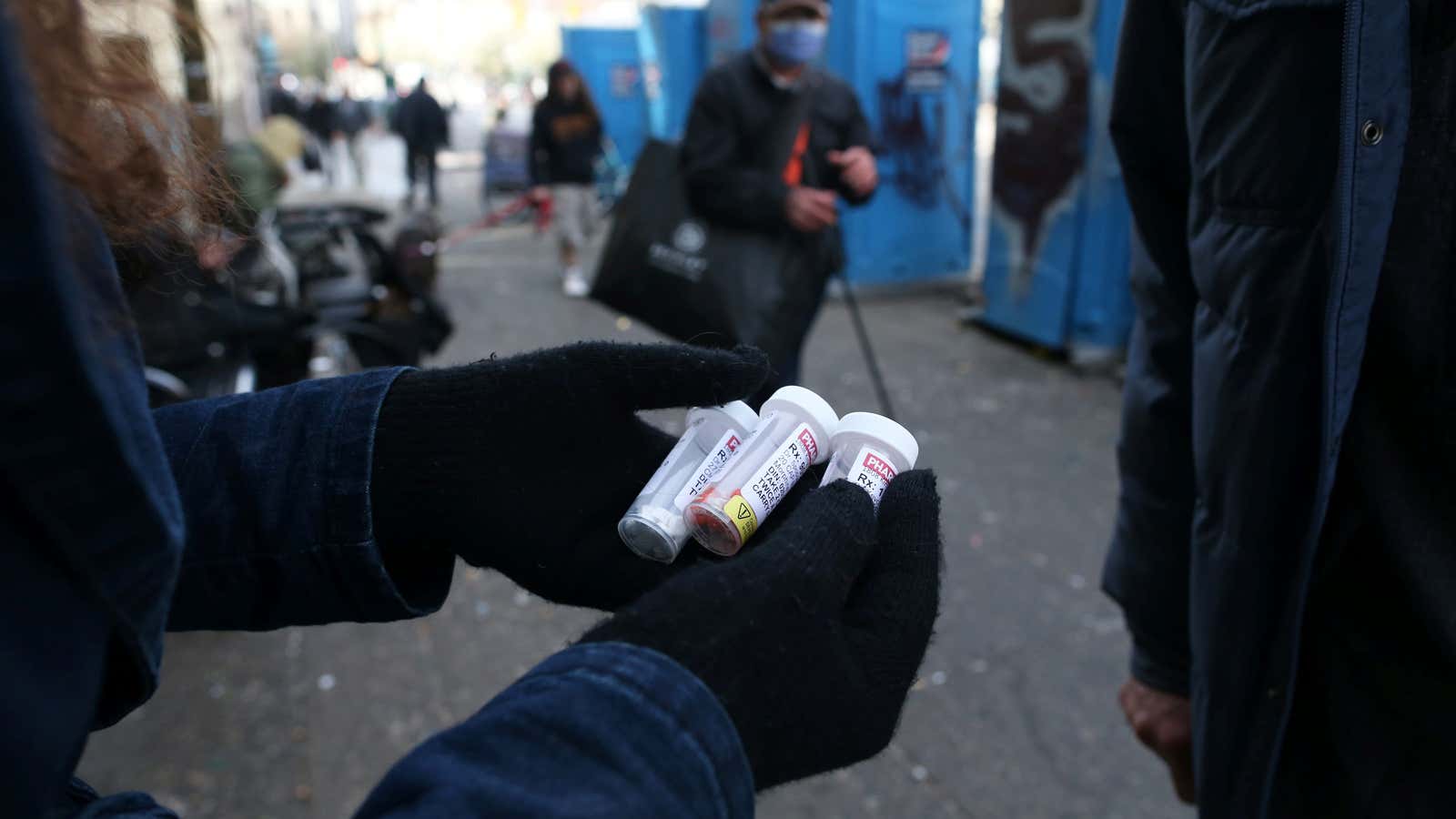The coronavirus pandemic caused a lot of deaths, and not just from Covid-19.
Other medical crises were triggered by the pandemic, as health deteriorated from prolonged lockdowns, isolation, and deferral of care for fear of contagion. In the US, one problem that grew worse was the opioid crisis, which until last year was at the forefront of public health intervention, and has since been replaced—in public attention and research funding—by Covid-19.
In the year ending in August, more than 88,000 people died of drug overdose, the most since the US started tracking them, according to the most recent estimates from the Centers for Disease Control and Prevention (CDC). Preliminary data for the rest of 2020 suggests it was the deadliest year yet for overdoses, as isolation, loss of jobs, and increased anxieties made drug users more vulnerable to relapses.
Borders closed because of the pandemic, too, led to a shortage of heroin and other drugs, and fentanyl—a synthetic drug—became a common replacement. Synthetic opioids—of which fentanyl is the most common—are deadlier than heroin, causing two out of three overdose deaths.
Treating addiction is a long, hard process. But what if it was possible to prevent overdoses—by vaccinating opioid users against them?
Sharon and Ofer Levy, both professors of pediatrics at Harvard Medical School, believe so. The two, who are married, are developing a vaccine that would prevent fentanyl from causing overdose deaths.
Fentanyl causes overdoses by entering the central nervous system, where it suppresses respiration, eventually causing death. The vaccine would instruct the immune system to produce antibodies against fentanyl in the blood, so when the drug is in the system, the antibodies would block it from crossing from the blood into the central nervous system, Ofer Levy said.
The study is currently focused on young users—15- to 25- years old—but its findings could potentially be extended to older populations, too, who are identified as at-risk of overdoses. “This would not be a vaccine given to the general population, this would be a vaccine you’d give to opioid users who are trying to get off drugs and are seen at a clinic but they remain at risk of overdosing and dying,” says Levy.
The program received a $25 million grant from the National Institute of Health and is currently enrolling study participants and conducting testing to determine the best formulation for the vaccine. The researchers hope to get into the testing stage in three to four years.
This isn’t the only attempt at fighting addiction (or its worst consequences) through vaccines. Other studies have shown that administering a vaccine against methamphetamine in mice reduced their addictive behavior, and non-viral vaccine technologies like mRNA could also be used to boost the immune system against addiction.
As with other efforts to reduce drug deaths that focus not on eliminating addiction but preventing its worst consequences, such as syringe exchanges or making Naloxone available over the counter, the possibility of an opioid vaccine presents a moral hazard. Might it encourage drug use, since the risks of death wouldn’t be as high?
Research has refuted this argument when it comes to other harm reduction interventions, and Levy says he doesn’t believe there is a risk for the vaccine, but that he and his team are collecting data to study the issue.
